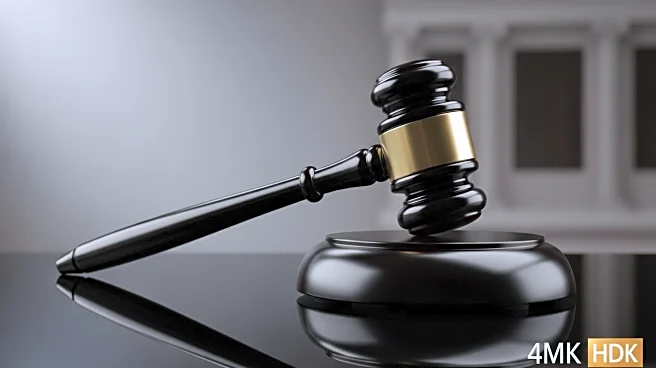What's Happening?
Former FBI Director James Comey has been charged with making a false statement and obstruction related to his testimony before the Senate Judiciary Committee in 2020. Comey, who served as the FBI Director from 2013 to 2017, posted his first public comment regarding the indictment on Instagram. The charges stem from allegations that Comey provided misleading information during his testimony, which was part of an investigation into the FBI's handling of certain high-profile cases. The indictment marks a significant development in the ongoing scrutiny of Comey's actions during his tenure at the FBI.
Why It's Important?
The indictment of James Comey is significant as it highlights ongoing concerns about transparency and accountability within federal agencies. Comey's tenure as FBI Director was marked by several controversial decisions, including the handling of investigations into political figures. The charges could have implications for public trust in the FBI and other government institutions, as they underscore the importance of truthful testimony and integrity in public service. This development may also influence future legislative and judicial actions regarding oversight of federal agencies.
What's Next?
The legal proceedings following Comey's indictment are expected to draw significant attention from political leaders, legal experts, and the public. As the case unfolds, it may prompt discussions about reforms in the oversight of federal agencies and the processes involved in congressional testimonies. Stakeholders, including lawmakers and advocacy groups, may push for increased transparency and accountability measures to prevent similar issues in the future.
Beyond the Headlines
The indictment of a former FBI Director raises ethical and legal questions about the responsibilities of public officials and the consequences of misleading testimony. It may lead to broader debates about the balance between national security interests and the need for transparency in government operations. Additionally, this case could influence cultural perceptions of the FBI and its role in safeguarding democratic processes.










